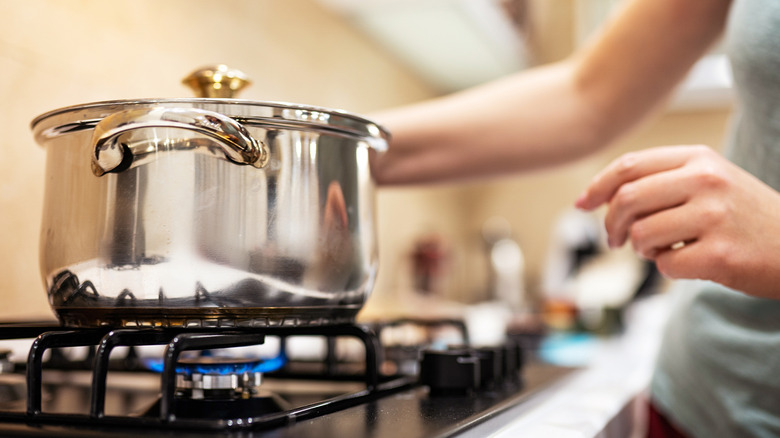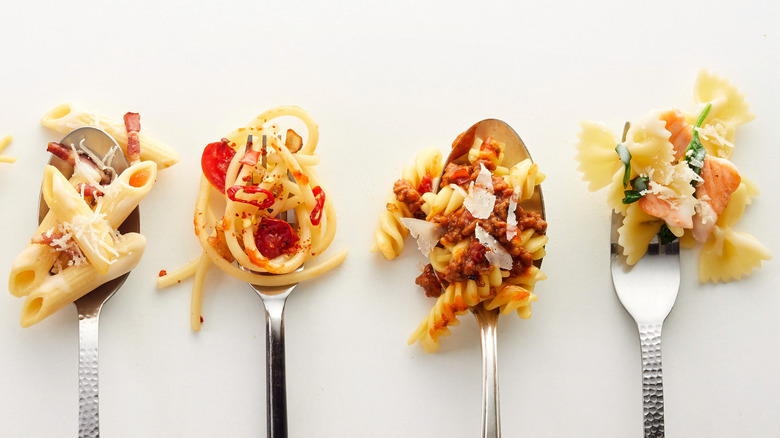The Real Reason You Shouldn't Keep The Pot Covered When Making Pasta
While cooking pasta seems relatively simple — just boil until ready — there are ways to step up your pasta game to a level you never thought possible. While most people have learned what cooking pasta al dente means (just undercooked with some bite), there are other things about the cooking process that might slip your mind.
The perfect plate of pasta starts with a big pot filled with water, but not just any water: cold water. Although warm will boil faster, Smithsonian Magazine notes there is a higher risk of dissolved minerals seeping into the water and leaving you with an unpleasant taste. Initially, using a lid on a pot can help water boil. By covering the pot, no water vapor can escape, meaning the temperatures will rise a bit more quickly than if the pot was uncovered (via Cook's Illustrated).
Once the water has come to a bubbly boil and you've added the pasta, the Italian experts from Eataly recommend removing the lid. Doing this will keep water from bubbling over and creating a giant mess — and ignore the myth that adding olive oil to the pot will prevent this, it'll just make pasta harder to bind to sauces.
Leaving the pot uncovered is also key because pasta should be stirred frequently to prevent sticking. Plus, because pasta should be cooked until al dente, a lid will make it hard to decipher how far along you are in the process, and might even lead to mushy noodles, which is the last thing you want.
More Tips for Cooking Pasta
Another important factor you might not have considered when preparing pasta is the cooking time. Often fresh pasta will take significantly less time than dried pasta, and some varieties like stuffed tortellini might even rise to the top when they're ready.
Make sure that before you drain your pasta, you save a cup of pasta water, or better yet, use a slotted spoon to add the pasta directly to a pan of sauce, as Food52 suggests. The starch in the water works to thicken the sauce (which is also why you shouldn't rinse pasta!), and will also ensure that each noodle is totally coated.
Regardless of which pasta you decide to cook and how you choose to dress it, remember that the details will make all the difference. Being informed about what you can expect during the cooking process will not only help you transform your pasta dish from just okay to restaurant-quality, but it'll also help you keep your composure in the kitchen!

